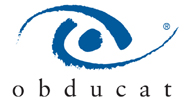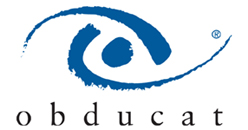OBDUCAT AB (publ) subsidiary Obducat Europe GmbH, a leading supplier of system solutions for lithography processing, has received an order from the Ferdinand Braun Institute in Germany, for the supply of a QS 200 Lift-off processing system. The order value amounts to approx. 2.5 million SEK and the systems will be delivered in the second quarter 2020.
The QS system is configured to perform a resist lift-off process. The system will be used in R&D activities focused on the development of optical devices, including lasers among other things, to be used in extreme high-frequency applications.
" The order concerns a lift-off system based on a new product platform that offers the markets smallest footprint compared to competing process systems – this gives us a competitive edge since cleanroom space is scarce and very expensive", says Patrik Lundström, Chairman of Obducat.
For further information, please contact:
Patrik Lundström, Chairman of the Board and CEO: +46 (0) 46 10 16 00 or +46 (0) 703 27 37 38
André Bergstrand, acting Managing Director and CFO: +46 (0) 46 10 16 00 or +46 (0) 703 27 37 32
About Obducat AB (publ)
Obducat AB (publ) is an innovative developer and supplier of technologies, products and processes used for the production and replication of advanced micro and nano structures. Obducat's products and services serve the demands of companies within the LED, OLED, semiconductor, displays, biomedical and MEMS industries. Obducat's technologies include nano imprint technology, coating technology and wet processing technology. Obducat has offices in Sweden, Germany and China and the headquarter is located in Lund, Sweden. Obducat's class B shares and preferential class B shares are publicly traded on the Swedish NGM Equity stock exchange. Read more at www.obducat.com.
About Ferdinand-Braun-Institut
The Ferdinand-Braun-Institut, Leibniz-Institut fuer Hoechstfrequenztechnik (FBH) researches electronic and optical components, modules and systems based on compound semiconductors. These devices are key enablers that address the needs of today's society in fields like communications, energy, health, and mobility. Specifically, FBH develops light sources from the visible to the ultra-violet spectral range: high-power diode lasers with excellent beam quality, UV light sources and hybrid laser systems. Applications range from medical technology, high-precision metrology, and sensors to optical communications in space and integrated quantum technology. In the field of microwaves, FBH develops high-efficiency multi-functional power amplifiers, and millimeter wave frontends targeting energyefficient mobile communications as well as car safety systems. The FBH has a strong international reputation and ensures rapid transfer of technology by working closely with partners in industry and research. The institute has a staff of 300 employees and a budget of 37.9 million euros. It is part of the Forschungsverbund Berlin e.V., a member of the Leibniz Association and part of »Research Fab Microelectronics Germany«. www.fbh-berlin.com

